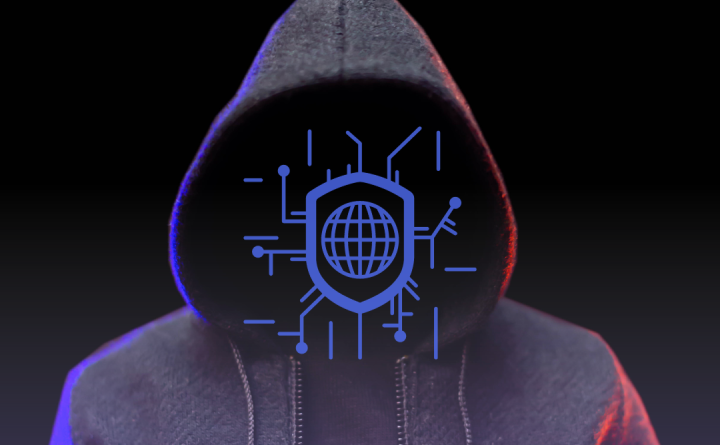Understanding the Hidden Face of Cybercrime in Cameroon: A Deep Dive into the Numbers
In today’s interconnected world, the digital landscape knows no borders. For us, Cameroonians, this means standing vigilant and proactive as we navigate a constantly evolving cyber threat landscape. Cybercrime isn’t just a global issue; it impacts us directly, affecting individuals, businesses, and our nation’s security.
Our latest newsletter takes you deep into the intricacies of cybersecurity and its direct relevance to Cameroon, supported by eye-opening figures and statistics:
? Local Cybercrime Landscape:
In Cameroon, the internet serves various purposes, including research, entertainment, documentaries, and unfortunately, criminal activities. With a significant user base of 13 million, statistics according to ANTIC(CAMEROON NATIONAL AGENCY FOR INFORMATION AND COMMUNICATION) reveals that 47.6% engage in digital payments, 15.8% utilize online banking, 42.4% own mobile money accounts, and 11.2% make purchases using credit cards.
The cybersecurity threat landscape in Cameroon primarily consists of ransomware, viruses, worms, web defacement, social engineering, Business Email Compromise (BEC), SIM card swapping (SIMSWAP), identity usurpation, Denial of Service (DOS) and Distributed Denial of Service (DDOS) attacks, official document disclosure, phishing, skimming, scamming, and insider threats.
? Legal Framework:
The legal framework overseeing cybercrime in Cameroon comprises:
- Law No 2022/002 on Cameroon accession to the Budapest Convention on Cybercrime which was adopted on the 23 November 2021 in Budapest
- Law N°2010/012 relating to cyber criminality in Cameroon
- Cybersecurity and Law N°2010/013 relating electronic communications in Cameroon.
- Decree No 2019/150 relating the restructuring of ANTIC
Common cybercrimes in Cameroon encompass identity theft, hate speech, spreading false news, and child pornography, among other offenses. To combat these issues, a robust legal framework has been established, imposing penalties that vary depending on the nature of the offense and the specific circumstances, with imprisonment of up to 10 years and fines of up to 10 million frs cfa
?♀️ Law Enforcement Agencies:
The dedicated professionals at the forefront of defense against cyber threats in Cameroon is led by Antic.
As per Antic, outlined in Article 6 of Decree Number 2019/150 dated March 22, 2019, the agency possesses the following authoritative powers:
- The power of injunction, allowing Antic to issue orders or directives to individuals or entities, mandating specific actions or abstaining from particular activities to ensure alignment with its mission.
- Coercive authority, enabling Antic to employ force, pressure, or other means of influence to compel individuals or entities to adhere to its mandate.
- The power of investigation and surveillance.
- Antic maintains a specialized division known as the Computer Incident Response Team (CIRT) with a primary focus on overseeing cybersecurity. Their core responsibility is to safeguard the integrity of the digital realm’s infrastructure.
- Antic collaborates with the State Secretariat for National Gendarmerie (SED) and the General Delegation for National Security (GDNS) to handle both preventive and responsive functions. These government bodies refer cases to the judiciary and initiate investigations utilizing specialized judicial police officers with expertise in this field.
- Within the framework of Law No. 2010/12 regarding cyber security and cyber criminality, Section 52 stipulates that, in cases of cyber offenses, investigations will be carried out by judicial police officers with general jurisdiction and authorized Antic officials, following the guidelines laid out in the criminal procedure code.Moreover, under Section 6 of Decree No. 2019/150, which pertains to the structure and operations of Antic, Antic is endowed with the authority to probe cybercrimes. This investigation authority can be exercised through systematic and unannounced checks within the sector, conducted by duly sworn agents.
? Education and Awareness:
Antic conducts annual awareness campaigns, and it’s noteworthy that the agency’s judicial police activities encompass:
- The ability to request and review comprehensive records of telephone subscribers, including those on MTN and Orange networks.
- The retrieval of mobile money transaction histories.
- Tracking and tracing of mobile devices.
- The extraction of digital evidence from various devices such as phones, laptops, servers, desktops, hard disks, and USB keys.
- The authentication of digital evidence and electronic communications, including emails, WhatsApp messages, calls, SMS, and electronic transactions.
- Undertaking cybercrime investigations.
- Providing cybersecurity training and raising awareness about cyber threats.

Here are key statistics provided by Antic in 2023 regarding the status of cybercrime in Cameroon:
- Antic has received over 50,000 requests from law enforcement and security services since 2019.
- In 2022 alone, a significant number of these requests (1,836 to be precise) resulted in the apprehension of suspects, with 673 investigation files subsequently forwarded to the court for legal proceedings.
- In the same year, 245 cases necessitated the authentication of digital evidence, a crucial step in resolving cybercrimes.
- Antic’s vigilant efforts have uncovered 32 instances of web defacement on public institutions’ websites, highlighting the need for enhanced cybersecurity measures.
- Furthermore, they detected a staggering 27,444 vulnerabilities on websites belonging to public institutions, underlining the importance of fortifying digital defenses.
? Economic Impact:
The economic impact in Cameroon due to cybercrime can be summarized as follows:
- Scamming and phishing have resulted in an approximate loss of 4.7 billion FCFA since 2011.
- Over the same period, skimming has led to a financial loss of 3.7 billion FCFA.
- Since 2019, there have been 4,226 reported cases of identity usurpation involving the Facebook profiles of prominent individuals.
- Approximately 5 billion FCFA has been lost due to intrusions into the information systems of certain private organizations.
- An alarming 7 billion FCFA has been lost to SIMBOX fraud since 2010.



? Collaboration and Protecting Critical Infrastructure:
In an age of unparalleled connectivity, collaboration both locally and internationally is essential to safeguard our digital landscape. Cyber threats recognize no boundaries, making collective defense an imperative. Working together, we can share knowledge, strategies, and resources to protect our digital realm
.?️ Strengthening Critical Infrastructure:
Cameroon is actively implementing strategies to enhance the resilience of its essential services against cyber threats. Recent incidents have brought to light the importance of safeguarding our public institutions’ online presence. Notably, 32 web defacement cases and the identification of 27,444 vulnerabilities on these websites serve as a wakeup call. As we move forward, fortifying the digital defenses of these critical platforms is paramount.
Now, more than ever, we must stand together to fortify Cameroon’s digital defenses. Whether you’re a cybersecurity professional, a legal tech enthusiast, a business owner, or simply concerned about your online safety, the insights and figures shared here empower you to take action.
Stay tuned as we continue to explore these vital topics in depth. Together, we can protect our digital frontier and make a lasting impact. Our commitment to a safer and more secure Cameroon starts here.#Cybercrime#cybersecurity




Leave a Reply